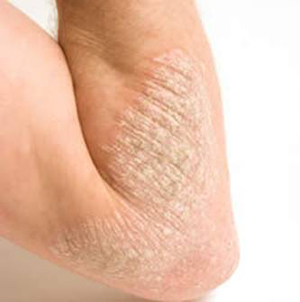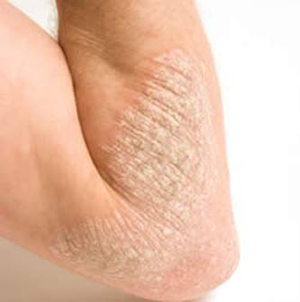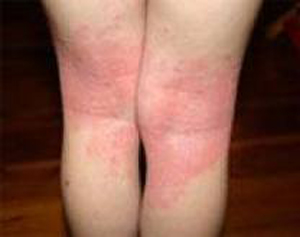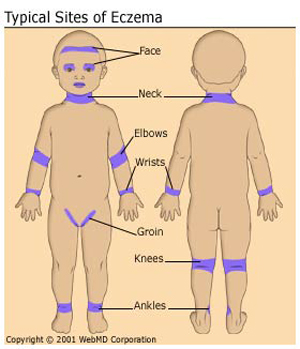
Atopic eczema (often called infantile eczema or just eczema) is an inflammation of the skin which causes a dry, red, scaling rash which is usually very itchy. In pigmented skin the appearance may be more purple or brown, and rough skin may be the dominant feature. It can become oozing and crusting. It tends to occur in young children after the age of 2-4 months. Eczema improves with increasing age in most children.
Although the cause is not known, it is commonly found in association with the allergic (atopic) conditions of asthma and hay fever. It is more likely to develop if other family members have suffered from atopic eczema, asthma or hay fever.
Atopic eczema begins in young infants. It often appears on the cheeks first which become inflamed and dry. The skin may be red or in pigmented skin shades of purple, brown or even white. It then can occur on the forehead and scalp.
As the child gets older it tends to occur on the body, and on the arms in front of the elbows and on the legs behind the knees. It can also appear around the wrists and ankles. The face is less commonly involved in older childhood, but the rash can occur behind the ears and around the eyes.
What causes it?
As mentioned above there is an association with other allergic conditions, but in most cases no obvious allergy to any substance is to be found causing the eczema. A number of factors can make it worse including:
– contact with irritant or drying substances such as soap, detergents and shampoos
– the cold weather when the skin tends to become dry
– secondary infection by bacteria
– stress
Although, many people wonder if something in the diet may be making it worse, in most children it is extremely difficult to show that a particular food is the cause of the problem.
How is it prevented & treated?
*** Things to Avoid
– Rubbing and scratching as this makes the rash worse and itchier
– Soaps, detergents and perfumed products as these dry out the skin
– Excessive washing with water as this also dries out the skin
– Spending a long time in a hot bath or shower as it will further irritate and dry out the skin
– Extremes of temperatures
– Doonas as they heat the child and make the eczema itchy
– Wearing prickly clothing such as wool in contact with the skin
– Direct contact with wool in blankets, carpets and sheepskin
*** Things to Do
– Use bath oil instead of soap to clean the skin
– Apply a moisturiser, such as sorbolene or queous cream regularly, especially after bathing
– After bathing or showering dry the skin by gently patting and not rubbing
– Undress in a warm room during the winter
– Keep the bedroom cool during summer
– Wear loose cotton clothing (or cotton/synthetic mix)
– Remove labels from clothing
– Use good quality absorbent nappies and change them regularly
If atopic eczema is more severe, the doctor may prescribe a cortisone to apply to the skin. In general, low-strength cortisone creams or ointments are used when the eczema is active and once it settles, these are stopped. The moisturisers are continued, even when the skin is under control.
If the eczema is infected, antibiotics prescribed by a doctor may be necessary. Antihistamine syrups may be useful for itch, particularly if it is occurring at night and causing lack of sleep.
The role of diet in the treatment of eczema is not clear and for most children the results of special diets are very disappointing. Although there is no harm in seeking an opinion about diet, it should be from someone who has a good understanding of eczema, plus an understanding of the food requirements of
young children.
– Avoid soap for washing the child’s skin
– Avoid bubble baths and washing the hair with shampoo in the bath
– Use a small amount of non-perfumed simple bath oil in the bath
– Have a bath every second day if the skin is becoming dry
– Avoid long hot baths and gently pat dry the skin
– Regularly put moisturisers – sorbolene or aqueous cream – on the child’s skin, especially immediately after bathing.
– Use good quality absorbent nappies and change them regularly
– Babies should have their vaccinations as usual
– Special diets make little difference to a child with eczema


